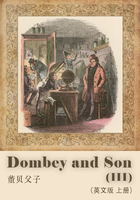Everyone wants to be happy and self-fulfilled. Everyone wants to experience joy, satisfaction, happy relationships, and peace of mind. Why, then, are so many people, by their own admission, leading “lives of quiet desperation”?
In almost every case, as we have discussed, the lack of happiness and personal fulfillment can be traced back to negative emotions and the blocks they throw in the paths of our lives. Those ugly frogs deep in the mental swamp trip us up and hold us back.
People are always blaming circumstances for what they are. I don't believe in circumstances. The people who get on in this world are the people who get up and look for the circumstances they want, and if they can't find them, make them.
VIVIE WARREN, MRS. WARREN'S PROFESSION, GEORGE BERNARD SHAW
Because of destructive criticism and a lack of sufficient love in childhood, children can begin to develop negative emotions at an early age. As they become adults, these emotions can become more and more intense and generate additional negative emotions of various kinds.
The main negative emotions that people experience are fear, doubt, worry, envy, jealousy, hate, resentment, undeservingness, and feelings of inadequacy, especially in comparison to others.
Fear, doubt, and worry arise when a child is continually criticized. Even if he accomplishes something worthwhile, it is never enough to satisfy his parents. In many homes, the parents seldom express love or approval, or they immediately withdraw their love and approval if they feel that the child is failing to please them in some way.
Emotions Distort Evaluations
All emotions, especially negative emotions, distort evaluations. A person in the grip of a negative emotion is incapable of thinking clearly or rationally. The more intense the negative emotion, the more the sufferer becomes detached from reality and is incapable of reasoning clearly. The person then talks and acts in a way that is often unexplainable and destructive.
Some years ago, Abigail Trafford, a New York writer who had been through a particularly bitter divorce, wrote Crazy Time. In the book, she explained how the emotionally chaotic two years of her divorce caused her to behave in ways that she could barely recognize when the divorce was over and she returned to normal. She felt that she had been “insane” for the entire time because of the intensity of the negativity she was feeling. Many people have similar experiences when going through an emotionally stressful situation. Emotions distort evaluations.
The Roots of Negative Emotions
Five major factors cause people to create negative emotions and hold on to them. These are some of the worst frogs of all, swimming deep in the darkest waters of the emotional swamp. They are justification, identification, hypersensitivity, judgmentalism, and rationalization. To free yourself from negative emotions, you must recognize where they come from so that you can get rid of them or even stop them from developing in the first place.
Justification
With justification, you defend your negativity and your right to be angry. Negative emotions cannot exist unless you can justify your right to experience them to yourself and others.
When you are discussing a particular negative situation, you become preoccupied with justifying your negativity on a variety of grounds. Often you talk to yourself as you drive, making your case and arguing vehemently with people who are not there. Justification often keeps you awake at night.
The more you justify yourself and convince yourself that the other person involved is bad in some way, that you are pure and innocent and are therefore entitled to feel the way you do, the angrier and more upset you become.
Although a situation may have occurred that hurt you, angered you, or was unjust, the only person who can attach an emotion to that experience is you. You can choose to hold on or let go.
Identification
The second key requirement for negative emotions is identification. This means that you take things personally. You interpret what has happened as a personal attack on you.
If you cannot personally identify with a negative situation, you will have difficulty generating any emotion, positive or negative, about it. If you read in the paper that a thousand people—men, women, and children—had been washed away and drowned by a flood in northern China, you would feel some remorse and then probably flip the page to the next subject with little or no emotion. Because you do not know any of the people affected or even know much about that part of the world, you do not identify with the tragedy. As a result, you experience no negative emotions about it.
This does not mean you can't feel compassion for someone else's experience or hurt, but you do not become emotionally involved. For example, if a coworker is not keeping up on her tasks due to some personal problems, you may feel bad for her, but that does not make it your job to take on her responsibilities at a cost to yourself. Having healthy emotional boundaries is essential, especially in a work environment. You can be compassionate without identifying with someone else's emotions.
Hypersensitivity
The third cause of negative emotions is hypersensitivity to the thoughts, opinions, or attitudes of others toward you. As we mentioned earlier, people who have been raised with destructive criticism and insufficient love can develop deep feelings of inferiority and inadequacy. These feelings will manifest in a concern about the actions, reactions, and treatment that they experience from other people.
Peter Ouspensky, in his book In Search of the Miraculous, referred to this process as “inward considering,” or feeling extremely sensitive to the way you are treated by other people or even feeling upset and depressed because you think that someone else is thinking negatively about you.
One positive word or comment of approval from another person can cause you to be elated. One negative glance can crush you. Truly hypersensitive people often see slight and disapproval where none exist. In extreme cases, hypersensitive people become paralyzed in that they cannot make a decision without getting the approval of other people.
Judgmentalism
The fourth reason for negative emotions is judgmentalism, the tendency of people to make negative assessments about others. When you judge others unfavorably, you invariably find them guilty of something. This guilt becomes the justification for your anger and resentment and negative feelings toward them.
The Bible (Matt. 7:1) says, “Judge not, that ye be not judged.” When you judge others, you actually bring negativity and unhappiness upon yourself. Whatever measure you use to judge others will be the measure they use to judge you. When you judge others, you are setting yourself up as someone who is superior to them, making them inferior to you and often triggering a negative reaction from them.
If you do not pass judgment on another, for any reason, you cannot become angry at that person. You can be angry only when you can make a good case to yourself that the other person has done or said something, or failed to do something, that has hurt you.
To start eliminating judgmentalism from your life, resolve, from now on, not to judge anyone else for anything. This is very hard to do, especially at the beginning, but you will get better at it with practice. Just keep reminding yourself that all people are entitled to their own way of thinking and living.
NOW DO THIS
Very often we judge others because we see something in them that we don't like in ourselves or we are jealous of them and want to be able to achieve the same results or enjoy the same rewards as they do. The next time you find yourself passing judgment on someone, explore your motivation. Do you dislike or suspect a similar trait in yourself? Or do you long to have the qualities and lifestyle that the other person has?
Judging and Condemning The opposite of judging and condemning is neutrality, remaining unemotional and unattached to the person or situation. You achieve this state with the Buddhist practice of detachment. Remain calm and unemotional. Stand back from the person, and allow him to be who he is and do what he does without measuring him by your own personal values and standards. In most cases, his actions don't concern you at all.
When you judge another, you become emotional. And emotions distort evaluations. The more you judge and condemn, the angrier and more negative you become. People often judge others because they want to control their behavior. The reality is that again, all people are entitled to live their own lives in their own way, as long as it does not negatively affect the lives of others. Live and let live.
If you were brought up in a family where someone was continually complaining about or criticizing others, you may have the false idea that judging and condemning others is a normal and natural behavior. The very idea of remaining neutral and detached when someone does or says something that you don't agree with may sound strange to you.
You have a wonderful mind. But it is a two-edged sword. You can use it to make yourself happy, or you can use it to make yourself angry. Your goal should be to use your intelligence to keep yourself calm, in control, and at peace, no matter what is happening around you or to you.
When people behave poorly, refrain from judging them. When people do or say things that seem to be negative and unnecessary, stand back and observe them impartially, without becoming upset or involved.
NOW DO THIS
For twenty-four hours, resolve to refrain from judging anyone for anything. Remain neutral. See how hard it is to practice detachment after it has become a habit to judge others continually!
Feel Sorry for Others The best way to stop yourself from judging is to pity or empathize with the other person. It is almost impossible to pity another person and judge that person negatively at the same time. Even better, you can bless, forgive, and let go. Rise above the situation. Refuse to allow the behavior of the other person to affect you in any way. Use the Law of Substitution to start thinking about something that makes you happy, thereby neutralizing the negative thought and any tendency to judge the other person.
When you deal with a difficult person, treat that person exactly as if he or she was a tired, hungry, irritable child who is becoming angry or even throwing a tantrum. You don't get angry with a child. You just accept that this is the way that children behave at certain times under certain circumstances. You may also pause and reflect on the times you felt tired, stressed, and difficult to be around. We all have our moments.
Another way to refrain from judging is to remind yourself that in a similar situation, you might act the same. You can say, “There, but for the grace of God, go I.” You allow others to live their own lives in the same way you want to be allowed to live your own life.
The Sedona Method The Sedona Method, developed by Hale Dwoskin, is a way of regaining emotional control in your life. In this method, you identify the people in your past with whom you are still angry. In addition, you identify the situations from your past that you are still upset about.
You then answer two questions. The first question is, “Do you want to be free of the negativity associated with this situation?” If your answer is yes, the second question is, “Are you willing to let it go completely?”
It is surprising how many people are not willing to let go of a negative experience that happened to them in the past. They feel that they have earned it and paid for it with time, money, and personal suffering. They feel entitled to their pain. In their heart of hearts, they are not willing to let it go.
Let It Go Here is the example given by the instructors of the Sedona Method. Put a pencil in your hand. Squeeze the pencil tightly. Squeeze it as hard as you can.
Then turn your hand over with the palm facing toward the floor while you are squeezing this pencil. Here's the question: “What is holding this pencil in your hand?”
The answer is obvious. You are holding the pencil by squeezing it so hard.
The next question is “How do you get rid of this pencil?” And the answer is simple: you simply open your hand and let it fall.
This is a wonderful illustration of the simplicity of dropping a negative event out of your life permanently. With the pencil, you open your hand and let it go. With a negative experience that still makes you unhappy, you open your heart and let it go.
Remember, no one makes you feel anything. No one makes you mad. Nothing that has happened to you has any control over you. No event, circumstance, or person from your past can affect your emotions without your permission. The only one who makes you feel anything is you—by the way that you interpret a past event to yourself. The dead frogs in your slimy pond are just that: dead. You keep the negative emotions alive by feeding them with thought and energy. Decide today to let go of those frogs and get on with your life.
Practice Compassion with Others One of the most beautiful emotions is that of compassion. Compassion means feeling the same emotions that another person is feeling and therefore understanding those emotions. It means feeling empathy for the other person and for the situation. You cannot experience a negative emotion of any kind toward another person when your heart goes out to that person in his or her difficult situation.
When you use your wonderful mind to find reasons for not judging, for letting the other person off the hook, and for letting go of any past hurt, you take complete control of your thinking. Instead of finding reasons why another person is guilty and should be condemned and punished, you instead seek reasons to find the other person “not guilty” and let him or her go free.
NOW DO THIS
Write down the names of all the people whom you are still angry with. Next to their names, write down what they did that causes you to feel justified in your anger and negative emotions. Now write down a list of reasons that they are not to blame, and decide to let them leave the swamp.
Now light this piece of paper on fire. Burn it ceremoniously in an ashtray, or throw it in a fire or barbeque. But let the flames destroy it completely.
In the same way, you can use your power of choice to let go of the hurt and pain of the past so that you can enjoy the freedom and happiness of the future.
Rationalization
Rationalization is what you do when you put a socially acceptable explanation on an otherwise socially unacceptable act. John Assaraf calls these “rational-lies.”
Because of low self-esteem and weak egos, most people cannot admit that they have done or said anything that was not thoroughly reasonable and justified. Even the worst criminals feel that they are innocent and merely victims of someone, something, or society. They rationalize their behaviors.
Peter Ouspensky explained that almost all unhappiness comes from “the expression of negative emotions.” The constant talking about and rehashing of a negative situation keeps the negative emotions alive and growing. In this sense, your negative emotions can be compared to a brush fire that begins with a small spark but quickly spreads out of control.
But if a spark lands on dry brush and you put it out immediately, no fire takes place or spreads. In the same way, if you stop the negative emotion the moment that it is triggered, it quickly goes out, like a small fire, and wreaks no damage.
Anger: The Core Negative Emotion
Sooner or later, all negative emotions come down to one: anger. Anger is the ultimate negative emotion. All fear, doubt, jealousy, envy, and resentment eventually turn into anger. This anger is then inwardly directed, making you sick physically and emotionally, or outwardly directed, undermining and destroying your relationships with other people.
All unhappy people are angry. Depression is inwardly directed anger, caused by the inability to express one's feelings about a situation openly and honestly. It is often triggered by feelings of low self-esteem and hopelessness.
Rage is outwardly directed anger, which takes the form of verbal or even physical attacks on other people for something they have done or not done.
The primary goal of psychological counseling is to help individuals process and understand their experiences, letting out the negative emotions that are holding them back. What many people discover in trying to understand their anger is that the anger is first sparked by hurt. When people can acknowledge that they feel hurt by something that someone did, didn't do, said, or didn't say, they find it much easier to release the emotional charge that keeps the anger alive.
The Roots of Anger
The primary reason for anger is feeling aggressed upon, attacked, hurt, or taken advantage of by another person. Anger is always rooted in defensiveness. Both anger and fear trigger the fight-or-flight response, causing the attacked person to withdraw for safety or to lash out at the attacker.
One of the worst aspects of anger is that the more someone expresses anger, the greater the anger grows, like a fire out of control. The reality is that the more someone feels angry, the greater the hurt becomes.
The expression of anger soon becomes a habit. The unhappy individual reaches the point where the smallest event triggers an explosion of anger. She goes through life angry most of the time. Soon, she comes to believe that her emotions and expressions of anger are a normal way to think and feel.
What compels people to persist in their anger is the need to have someone acknowledge the hurt and understand their pain. When listening to someone talk about something that makes that person mad or sad, perhaps the most helpful words you can say are “I understand exactly how you feel; if I was in your situation, I would feel the same way.” Showing that you empathize is one of the fastest ways to calm an angry person. When people feel understood in their pain, they can start to heal.
The Centrality of Blame
The root cause of anger is blame. Blaming yourself or others for something that they have done or not done is the essential requirement for the feeling and expression of negative emotions of all kinds.
In fact, it is impossible to hold a negative emotion for any length of time unless you can blame someone or something for the situation that you are angry about. The moment that you stop blaming, the negative emotion stops simultaneously, like turning off a light switch.
The antidote to negative emotions is so simple and effective that it is almost overwhelming. People who have been negative, angry, and unhappy for years can short-circuit their negative emotions almost instantly with one simple but powerful decision: accept responsibility.
Three Magic Words
How do you accept responsibility? Simply say the words “I am responsible!”
Whenever you are angry or unhappy for any reason, you can immediately short-circuit the emotion by saying to yourself, over and over, “I am responsible! I am responsible! I am responsible!” until the negative feeling goes away. This is an astonishing discovery that totally transforms the life of every person who practices it.
Because of the Law of Substitution, your mind can hold only one thought at a time. It can hold the positive emotion of personal responsibility or it can hold the negative emotion of anger or blame. But it cannot hold both. And the choice is always up to you.
The only thing in the universe that you can control is the content of your conscious mind. If you choose to hold the positive thought “I am responsible” rather than the negative thought that makes you unhappy, you become positive, optimistic, and completely in control, sometimes in just a few moments.
You Are Responsible
Since all negative emotions are rooted in blame, the antidote is simple: instead of blaming, accept responsibility for the situation. When you accept complete responsibility for the situation, your negative emotions stop, like slamming on a brake. It is impossible to accept responsibility for a situation and to simultaneously be angry or unhappy about that situation. The acceptance of responsibility cancels out all the negativity associated with the situation (or person) and puts you back into emotional control.
For example, Christina had a client who had lost several jobs due to his explosive confrontations with coworkers and superiors. He was even-tempered most of the time, but because of his insecurities he would not speak up to gain clarification on projects. He allowed his frustration to boil to a point where he became explosive. In his work with Christina, he acknowledged and took responsibility for his role in losing his jobs. The two of them developed a plan for him to communicate his needs and concerns before he became overly frustrated, and as a result of his taking responsibility for his actions, he has remained at his current job for over two years.
Find Reasons Not to Express
Negative Emotions
We said earlier that unhappiness comes from the expression of negative emotions—either to yourself or to others or both. If you do not express negative emotions, talk about them, or rehash them, you cannot feel negative.
From this moment onward, instead of using your incredible intelligence to think of reasons why you should be fearful, doubtful, envious, jealous, resentful, and angry because of things that have happened, use your creativity to find reasons not to express your negative feelings, justifications, and rationalizations.
The most powerful way to short-circuit the expression of negative emotions is to repeat “I am responsible!” every time an event occurs that would normally trigger a negative reaction from you.
At this point, many people say, “Wait a minute! There is no way that I can accept responsibility for the terrible thing that the other person did to hurt me. Accepting responsibility would not be honest because I am not responsible in any way.”
You Can Control Your Responses
This may be true. You may have been robbed, cheated, lied to, swindled, betrayed, or hurt in countless ways by someone else. You may have gone to the parking lot and found that someone had banged into the side of your car and then driven away. In a case like this, you're not legally at fault and you are not to blame.
However, although you may not be responsible for what happened, you are responsible for the way that you behave afterward. Your response is completely under your control—totally a matter of personal choice. Nothing makes you angry or unhappy. You make yourself angry or unhappy by the way that you choose to react to the unhappy experience.
In the poem “If,” Rudyard Kipling says, “If you can keep your head when all about you are losing theirs and blaming it on you; … you'll be a man, my son.”
The mark of happy, effective people is that they exert their willpower and self-discipline to keep themselves calm and controlled no matter what is going on around them. Great men and women are those who have developed the ability to remain cool under fire.
Remember, emotions distort evaluations. The minute that you begin to blame someone else and become angry for what has occurred, you begin to lose your ability to think clearly and decide intelligently. You become a slave to your emotions. You can very quickly become swept away and find yourself doing and saying things that you later regret.
Get Over It
People who go though a bad relationship often remain furiously angry at the other person, sometimes for years, when the relationship breaks down. But when you say, “I am responsible!” and look for reasons why you were at least partially responsible, you will find that you made a lot of the decisions that got you into the bad relationship in the first place. You are not responsible for the actions of the other person, but you are fully responsible for everything that you did or said from the beginning of the relationship to the end and to the present day. You were not an innocent bystander.
You may become upset when a job doesn't work out or a business deal goes wrong. But you are responsible. No one forced you into the situation at gunpoint. Based on your knowledge and information, or lack of knowledge, you got yourself into the situation in the first place. Unfortunately, it did not work out as you expected. The next time you will be smarter and wiser. But for the moment, you are responsible.
Two Fires Burning
The Law of Emotion says that everything you do is determined by an emotion of some kind, either positive or negative. The emotions that you think about and talk about the most soon grow and consume your entire life and preoccupy your thinking, for better or worse.
Imagine that you have two fires burning. One is the fire of desire and the other is the fire of negative emotions based on your interpretation of past events.
You have a continuous flow of emotional energy, emotional firewood. You can put this wood on either fire. But if you put all the wood on one fire, what happens to the other fire?
The answer is simple. If you put all your emotions onto the fire of desire and spend all your time thinking and talking about what you want and how to get it, the fire of negative emotions and experiences eventually dies out and the ashes go cold. This is the essence of all emotional healing.
From now on, when something goes wrong for any reason, immediately say, “I am responsible!” and stop the negative emotion from getting started in the first place.
NOW DO THIS
Consider the most negative situation in your life, the one that makes you the most angry whenever you think about it, and cancel the negative emotion by saying firmly to yourself, “I am responsible!”
Then think about all the things you did or didn't do to get yourself into that situation in the first place. As you do, your emotions will calm, you will feel at peace, and often you will find yourself smiling.
This exercise takes tremendous courage and character the first time you try it, but it becomes easier with practice.















